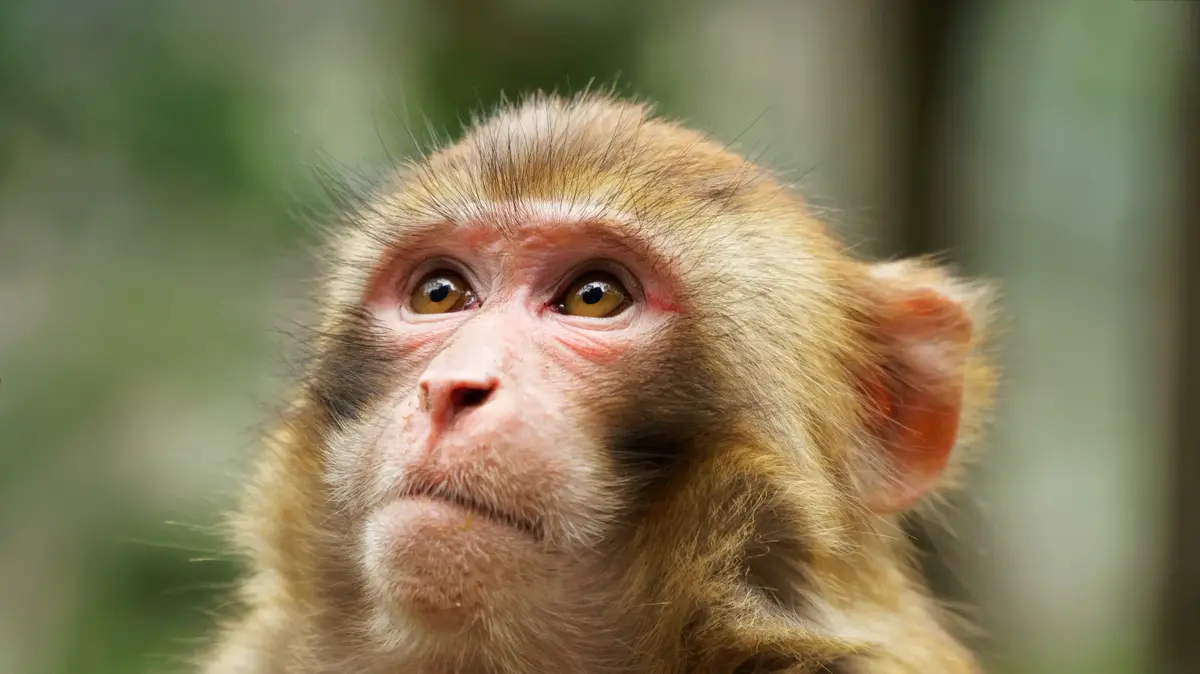Monkeys living in the town of Lop Buri, north of Bangkok, were recorded fighting with each other over a banana and attacking humans because of a lack of food (Editor: Tal Resnik)
Spinning in great apes is the focus of intriguing new research that suggests that spinning in trees may be a way for these animals to change their cognitive state.
If true, it could indicate that we've been sensing mind-altering activities since before Homo sapiens evolved, raising questions about how their use has affected the development of the human brain.
In a new study published in the journal Primates, great apes were observed snacking on naturally fermented foods with alcohol concentrations significant enough to cause intoxication.
Studying drug use in great apes has become more complex and difficult as they are used less and less in laboratory studies, but a new study has found a much funnier and less invasive way to study primates' love of altered states of consciousness.
Using YouTube, the team located 40 videos of apes spinning and spinning, including orangutans, gorillas, chimpanzees and bonobos.
The longest spin observed consisted of 28 turns.
Additionally, there was a difference between the types of apes when it came to speed, with orangutans moving around much faster than gorillas.
Out of the 43 descents from the twirl they watched, only in six cases did the monkeys stay on their feet.
The rest of the time they sat or lay down immediately, or did so after a few short steps, indicating that the animals experienced symptoms of dizziness.
The researchers were able to calculate the speeds at which the great apes moved and concluded that this would be fast enough to cause a physiological peak in a human.
"Spinning at similar rates inevitably produces severe vertigo in untrained humans," they explained, adding "we invite the reader to try the observed averages of spin speed, length, or bout number performed by great apes, for verification."
Whether such vertigo is more common among apes of a certain species or age group is something the researchers say they want to investigate further.
It's possible that spinning could be a way for some apes to communicate.
In addition, the role of vertigo as a means of changing mental states raises interesting questions, whether or how such behaviors affected the development of the human brain.
Alteration of the state of consciousness
"The dizziness changes our state of consciousness, it confuses the responsiveness and coordination of our body-mind, which makes us feel sick, dizzy and even exalted, as in the case of children who play on merry-go-rounds and merry-go-rounds," said Dr. Adriano Lamira, a psychology expert at the University of Warwick who led the research in a statement.
"What we wanted to try to understand through this research is whether it is possible to investigate vertigo as a primitive behavior that human ancestors were able to engage in autonomously and enter other states of consciousness.
If all the great apes seek vertigo, it's likely that our ancestors did too."
"There are some interesting parallels that need to be explored further, to understand why people are motivated to engage in these behaviors.
It may very well be that we sought out and engaged in mind-altering experiences even before we were modern humans."
health
news
Tags
monkeys
drugs
dizziness

